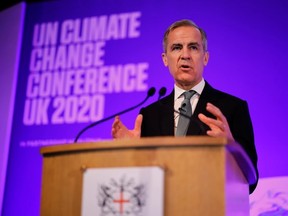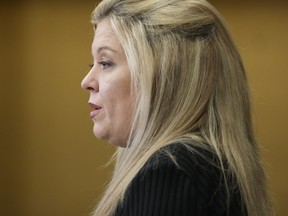Politics
Carney Government Faces Pressure on Climate Policy Direction

The newly formed Carney government in Canada is at a critical juncture as it grapples with balancing fiscal responsibilities and environmental commitments. The administration faces a choice between adopting pragmatic policies or engaging in a more aggressive stance against the oil and gas sector. This dilemma could shape the government’s approach to taxation and fuel costs while addressing Canada’s relatively minor contribution to global carbon emissions.
Recent developments indicate a tentative step towards a compromise. In March 2024, a meeting in Saskatoon involving Prime Minister Mark Carney and provincial premiers resulted in a consensus that the Pathways Alliance Carbon Capture and Storage Project (PCCS) is in the national interest. This initiative aligns with proposals from Alberta Premier Danielle Smith for a “grand bargain,” which would approve carbon capture alongside new pipelines to facilitate Canadian oil exports to markets beyond the United States.
The PCCS project, estimated to cost $16.5 billion, is designed to capture carbon dioxide emissions from around 20 oil sands facilities and store them underground near Cold Lake, Alberta. Critics argue that this initiative will only address less than two percent of Canada’s annual emissions, which constitutes a mere fraction of global carbon output.
Environment and Climate Change Canada (ECCC) has committed to not requiring taxpayers to fund environmental projects lacking justification based on the social cost of greenhouse gases. The ECCC has estimated this cost at $271 per tonne, relying on calculations that have drawn skepticism from various experts.
Professor Ross McKitrick of Guelph University has challenged the validity of the social cost of carbon, asserting that the benefits of increasing carbon dioxide may outweigh the associated costs. His research contrasts sharply with figures used by the U.S. Environmental Protection Agency, which showed a significant increase in the estimated social cost of carbon during the Biden administration.
In the past decade, the Canadian federal government has allocated approximately $200 billion to combat climate change, raising questions about the effectiveness of such expenditures. As public sentiment shifts, there is growing impatience regarding the government’s climate policies, particularly as costs associated with projects like PCCS continue to rise.
The global climate dialogue is also evolving. Recently, the United Nations called for the criminalization of what it terms “disinformation” regarding climate change, a move that some interpret as an indication of desperation among climate advocates. This push has sparked debates about the definitions of misinformation and the implications of such actions on freedom of speech.
The Carney government now stands at a crossroads. Observers are keenly watching whether it will continue pursuing an ambitious climate agenda or recalibrate its approach in response to public sentiment and economic realities. The outcome will not only impact Canada’s energy sector but may also influence the broader narrative surrounding climate policy in other developed nations.
-

 Politics4 weeks ago
Politics4 weeks agoSecwepemc First Nation Seeks Aboriginal Title Over Kamloops Area
-

 World5 months ago
World5 months agoScientists Unearth Ancient Antarctic Ice to Unlock Climate Secrets
-

 Entertainment5 months ago
Entertainment5 months agoTrump and McCormick to Announce $70 Billion Energy Investments
-

 Science5 months ago
Science5 months agoFour Astronauts Return to Earth After International Space Station Mission
-

 Lifestyle5 months ago
Lifestyle5 months agoTransLink Launches Food Truck Program to Boost Revenue in Vancouver
-

 Technology3 months ago
Technology3 months agoApple Notes Enhances Functionality with Markdown Support in macOS 26
-

 Lifestyle3 months ago
Lifestyle3 months agoManitoba’s Burger Champion Shines Again Amid Dining Innovations
-

 Top Stories2 months ago
Top Stories2 months agoUrgent Update: Fatal Crash on Highway 99 Claims Life of Pitt Meadows Man
-

 Politics4 months ago
Politics4 months agoUkrainian Tennis Star Elina Svitolina Faces Death Threats Online
-

 Sports5 months ago
Sports5 months agoSearch Underway for Missing Hunter Amid Hokkaido Bear Emergency
-

 Politics5 months ago
Politics5 months agoCarney Engages First Nations Leaders at Development Law Summit
-

 Technology5 months ago
Technology5 months agoFrosthaven Launches Early Access on July 31, 2025





















